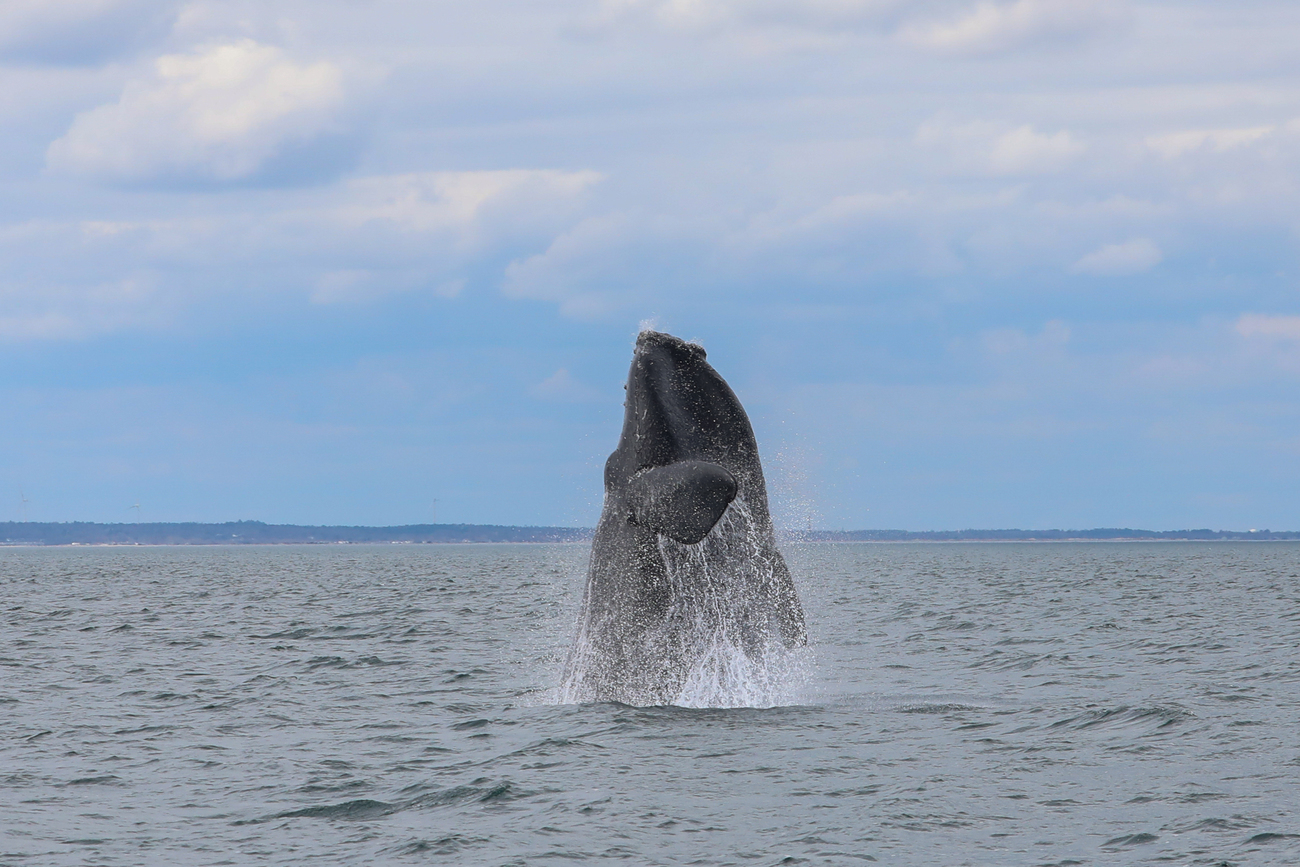Azzedine Downes
I have never been satisfied with just fighting the good fight. We need to actually make a difference.
is it too late to save the North Atlantic right whale from extinction?
But let’s turn briefly to another marine mammal—the vaquita, a species of porpoise with fewer than 20 animals left in its population. Despite concerted efforts to pull these small porpoises back from the brink of extinction in recent years, the situation is now dire. With so few left, their battle is nearly lost.
Like the ill-fated vaquita, the North Atlantic right whale is critically endangered. According to estimates released today, only 340 members of the species remain. That number is shockingly low, especially given that North Atlantic right whales numbered in the tens of thousands before commercial hunting took its toll on the population. These days, these animals die horrific deaths from getting hit by ships or entangled in the ropes of fishing gear. Every confirmed North Atlantic right whale death is now due to human causes—they are no longer dying of old age.

I often get asked if it’s simply too late to save the North Atlantic right whale.
Here’s my answer: It’s not too late—we still have a shot at saving the species, and I remain hopeful. But we cannot wait until we find ourselves at the tail end of a losing battle, as is the case with the vaquita. We must make the North Atlantic right whale our top priority today.
That’s exactly what we’re doing at IFAW (International Fund for Animal Welfare). As an organization, we’ve decided that our fundamental priority in North America right now is to save the North Atlantic right whale from going extinct.
It’s not a simple task. We understand the complexities involved in balancing the conservation needs of the species with the economic needs of industry. The solutions we’re working on address those complexities. At the same time, our solutions focus on saving individual lives to ultimately save the entire species.
We work with the fishing industry in the United States and Canada to support the transition to fishing gear that operates without ropes. Whales frequently become entangled in the ropes of lobster traps and ghost gear—tangles of nets that have come loose and drift through the water. When whales get entangled, hundreds of pounds of rope and gear weigh them down as they struggle to swim and feed, often while suffering from deep and painful lacerations. These whales usually starve or drown due to exhaustion. Ropeless fishing gear is an exciting technological solution that could eventually eliminate the minefield of ropes that whales face as they travel through the ocean.
To protect right whales from colliding with vessels, we’re engaging with shipping organizations to regulate ship speeds. We’ve seen first-hand the broken vertebrae, jaw fractures and amputated tails caused by fast-moving vessels. We also know right whales are slow swimmers, and that ships are unlikely to strike one if they travel at a speed of 10 knots or slower. Speed reductions in critical habitats are one of the simplest and most obvious ways we can prevent gruesome injuries to right whales, and deaths.
Meanwhile, our rescue team on the East Coast of the U.S. is ready to respond to injured or sick right whales at a moment’s notice. They are equipped to deliver drugs and specialized veterinary care to give these animals a chance at survival. With so few right whales left, every life that we save is critical to conserving the species.
IFAW’s members and the public have been helping us protect right whales too. With our citizen science app, where users notify us of whale sightings, we can alert mariners to be cautious of whales present in the area, and we can also establish speed zones.
The North Atlantic right whale is not yet doomed. I retain hope that the species will survive and flourish again, but that can only happen if we devote substantial time, energy and resources to saving it. And only if we act now—before it’s too late.
Azzedine Downes
I have never been satisfied with just fighting the good fight. We need to actually make a difference.
Our work can’t get done without you. Please give what you can to help animals thrive.
Unfortunately, the browser you use is outdated and does not allow you to display the site correctly. Please install any of the modern browsers, for example:
Google Chrome Firefox Safari